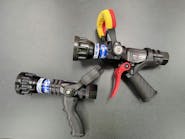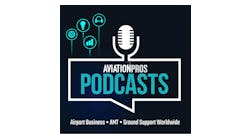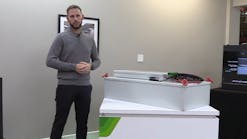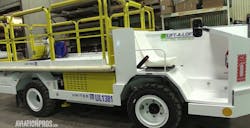Just how American is the proposed startup airline Virgin America? Not American enough, critics say.
The proposed low-cost carrier, which is seeking approval from the Department of Transportation to begin flying, is facing strong opposition from several major domestic airlines that accuse it of trying to skirt U.S. ownership laws.
Virgin America is the brainchild of British entrepreneur and billionaire Richard Branson, who heads the British business conglomerate Virgin Group, which includes the successful Virgin Atlantic airline. Other airlines in Branson's Virgin brand include Australia's Virgin Blue and Polynesian Blue.
Mr. Branson long has wanted to expand his empire to the American skies, but has been hindered by U.S. laws forbidding foreign ownership and control of domestic airlines.
So Mr. Branson partnered with U.S. investors to set up an ownership structure in which 75 percent of Virgin America's voting stock is U.S.-held, the minimum threshold required. The Virgin Group controls the remaining 25 percent.
Virgin America last year secured $177.3 million in funding led by VAI Partners LLC, an investment group funded by U.S. investment firms Black Canyon Capital and Cyrus Capital Partners. The deal is among the largest of any startup airline in U.S. history.
The airline's chief operating officer is an American, Fred Reid, ensuring that the airline is free of foreign control, company officials say.
Don Carty, who served as chief executive and chairman of AMR Corp., the parent company of American Airlines, from 1998 until he was forced out in 2003, is Virgin America's chairman.
"Some of the arguments against [Virgin America] have been pretty spurious - like Fred Reid was hired by a foreigner, so he must be a foreigner," airline spokesman Gareth Edmondson-Jones said. "Virgin America's application is within current U.S. law."
Not so, say several U.S. carriers, who say Mr. Branson's influence would be anything but minor. Those carriers include Continental, U.S. Airways, Delta and American airlines.
"Virgin America is a foreign-funded, -owned and -controlled would-be airline masquerading as a U.S. airline applicant," says a document filed by Continental Airlines to the Department of Transportation on Aug. 2. "Virgin America is a creature of the foreign Virgin Group, established to fulfill Sir Richard Branson's and the Virgin Group's long-standing and publicly proclaimed goal of operating, owning and controlling a U.S. airline."
Virgin Group officials say Mr. Branson's role doesn't extend much beyond holding the trademark rights to the Virgin America name.
But critics say that as long as Mr. Branson has any affiliation with Virgin America, his influence will dominate the company.
"If the Virgin Group had set out to thumb its nose at the Department [of Transportation's] standards for ensuring that U.S. airlines are actually controlled by U.S. citizens, it could not have developed a scheme much better at flouting the department's standards than its current plan," the Continental documents say.
Opponents also say that since U.S. airlines face significant restrictions from doing business in Britain, Virgin America shouldn't be afforded any special courtesies here.
Transportation Department officials say they won't comment on Virgin America's application, submitted in December 2005, until a decision is made. The department faces no deadline.
Airline analyst Darryl Jenkins said the airline's opponents are smart to raise the ownership question, though he added it's difficult to predict the outcome.
"Their application definitely has a shot [at] approval, but they're going to have to jump through a lot of hoops and spend a lot of money on lawyers," Mr. Jenkins said.
The Transportation Department, under orders from President Bush, earlier this year proposed to allow foreign investors to increase stock ownership in U.S. airlines from 25 percent to 49 percent. The House overwhelmingly voted against the plan.
Virgin America, meanwhile, isn't sitting idle, leasing more than 30 Airbus jets.
"These guys have spent more money than any other startup carrier, and they're not even in the air yet," Mr. Jenkins said.
Virgin America has accused its would-be competitors of filing numerous and frivolous documents with the Transportation Department in an attempt to needlessly delay its decision, a delay it says is costing millions of dollars.
The airline, which wanted to be flying months ago, announced in August it had secured an extra $53 million line of credit in order to pay its bills.
Virgin America officials say only a few major "legacy" carriers oppose the would-be upstart.
"None of the other low-cost carriers oppose us," Mr. Edmondson-Jones said.
Virgin America officials say they hope to be flying by early 2007 with an initial route between San Francisco International and New York's John F. Kennedy International airports.
Mr. Edmondson-Jones declined to say if the airline was considering any Washington-area airports, but said it is looking to expand to other major markets.





